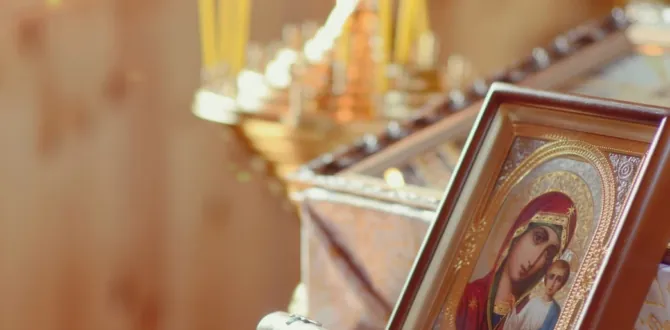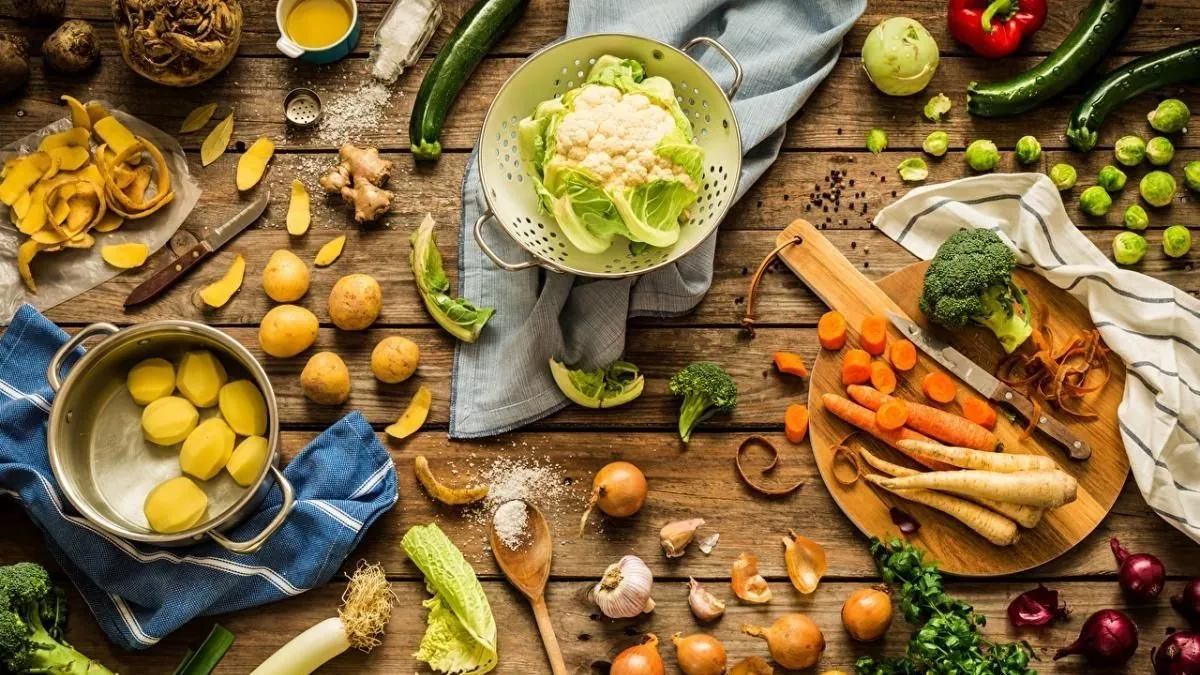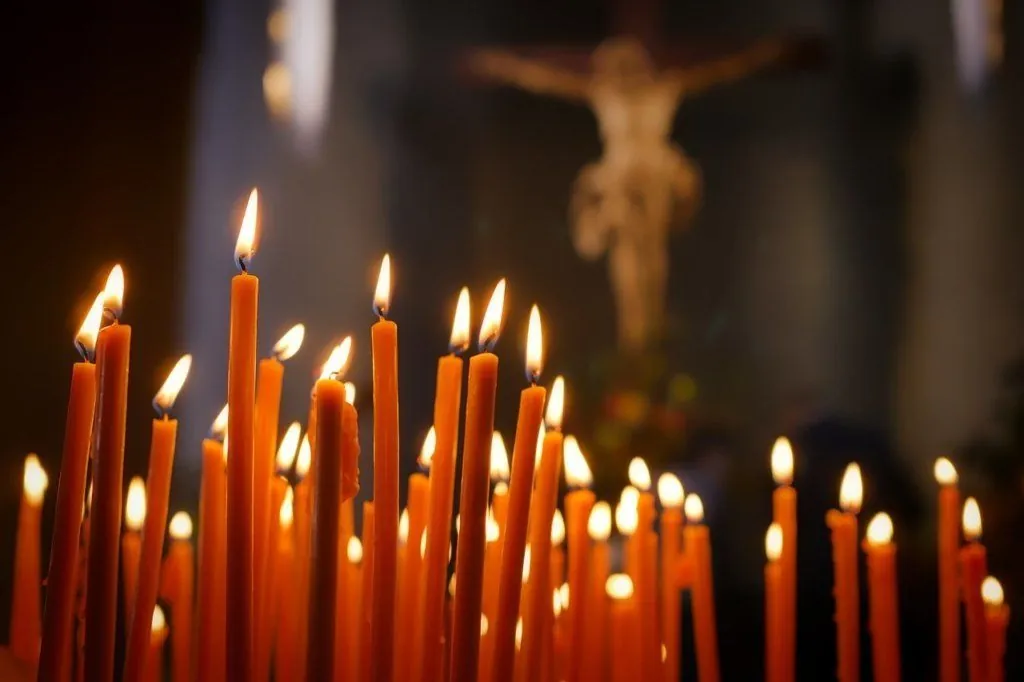Lent 2025: what you can eat and what you should limit yourself to
Kyiv • UNN
In 2025, Lent will last from March 3 to April 19. Detailed food schedule by day, a list of prohibited and permitted foods for the faithful of the UGCC and the OCU.

The faithful of the Ukrainian Greek Catholic Church (UGCC) and the Orthodox Church of Ukraine (OCU) are actively preparing for Easter, observing the 40-day Lent.
In 2025, Lent will begin on March 3 and will last until April 19, UNN reports.
Fasting has an important spiritual meaning in Christianity. Restriction of food contributes to spiritual purification and inner development. It is a time for prayer, repentance, and strengthening of faith. Giving up certain foods symbolizes a decrease in dependence on material things and helps to focus on spiritual goals.
Food restrictions during Lent
The most severe restrictions apply to products of animal origin. It is forbidden to consume during the fast:
- Meat and meat products: all types of meat (beef, pork, lamb, chicken, turkey, game), as well as sausages, sausages and deli meats. Do not use lard or fats of animal origin.
- Dairy products: all types of milk (cow's milk, goat's milk, etc.), cheeses, fermented milk products, sour cream, cream, butter and ice cream.
- Eggs: all eggs, including chicken, quail and goose eggs, as well as dishes using them.
- Fish: Although fish is considered a fasting food, it is allowed only on certain days - the Annunciation (April 7) and Palm Sunday (April 13). Caviar is allowed on Lazarus Saturday (April 12).
- Alcohol: Strong alcoholic beverages are prohibited. Red wine is allowed in moderation on holidays.
Orthodox Church refutes myths about “secret” name at baptism09.01.25, 10:17 • 27068 views
Permitted foods in Lent
- Vegetables: the basis of a lean diet, including fresh (cucumbers, tomatoes, cabbage) and cooked (potatoes, beets, carrots). You can eat stewed, baked, and fried vegetables on the days allowed.
- Fruits and berries: fresh fruits (apples, pears, citrus fruits) and berries, as well as frozen and dried fruits are allowed.
- Cereals and legumes: a variety of cereals (buckwheat, rice, oatmeal), pasta without eggs, lean bread and legumes (peas, beans, lentils).
- Mushrooms: fresh, dried and pickled mushrooms can be included in the diet.
- Nuts and seeds: Eat in moderation.
- Drinks: water, herbal teas, sugar-free compotes, and freshly squeezed juices.

Food traditions in Lent
Week 1 of Lent (March 3 - March 9)
- Monday, March 3 (Clean Monday): Dry eating. Complete abstinence from cooked food and oil. Only bread, water, salt, raw fruits and vegetables, dried fruits, and nuts are allowed. It is advisable to refrain from eating until the evening.
- Tuesday, March 4: Dry eating. Similar to Clean Monday.
- Wednesday, March 5: Dry eating.
- Thursday, March 6: Dry eating.
- Friday, March 7: Dry eating.
- Saturday, March 8: Hot food with vegetable oil. Boiled vegetable food (cereals, soups, stewed vegetables, mushrooms, stews, lean borscht) with the addition of vegetable oil is allowed. Wine is allowed (in moderation).
- Sunday, March 9 (Feast of Orthodoxy): Hot food with oil. Similar to Saturday.
Orthodox calendar for 2025: dates of the great feasts31.12.24, 19:30 • 256865 views
Week 2 of Lent (March 10 - March 16)
- Monday, March 10: Dry eating.
- Tuesday, March 11: Hot food without oil. Boiled vegetable foods (cereals, soups, stewed vegetables, mushrooms) without added oil are allowed.
- Wednesday, March 12: Dry eating.
- Thursday, March 13: Hot food without oil.
- Friday, March 14: Dry eating.
- Saturday, March 15: Hot food with oil. Wine is allowed (in moderation).
- Sunday, March 16 (St. Gregory Palamas): Hot food with oil. Same as Saturday.

Week 3 of Lent (March 17 - March 23)
- Monday, March 17: Dry eating.
- Tuesday, March 18: Hot food without oil.
- Wednesday, March 19: Dry eating.
- Thursday, March 20: Hot food without oil.
- Friday, March 21: Dry eating.
- Saturday, March 22: Hot food with oil. Wine is allowed (in moderation).
- Sunday, March 23 (Holy Cross): Hot food with oil. Similar to Saturday.
Week 4 of Lent (March 24 - March 30)
- Monday, March 24: Dry eating.
- Tuesday, March 25: Hot food without oil.
- Wednesday, March 26: Dry eating.
- Thursday, March 27: Hot food without oil.
- Friday, March 28: Dry eating.
- Saturday, March 29 (St. John the Baptist): Hot food with oil. Wine is allowed (in moderation).
- Sunday, March 30 (St. John the Foresters): Hot food with oil. Similar to Saturday.
Week 5 of Lent (March 31 - April 6)
- Monday, March 31: Dry eating.
- Tuesday, April 1: Hot food without oil.
- Wednesday, April 2: Dry eating.
- Thursday, April 3: Hot food without oil.
- Friday, April 4 (Praise of the Most Holy Theotokos (Akathist Saturday)): Hot food without oil. Normally, oil is allowed on the Saturday of the Akathist, but since it is the 5th Friday of Lent, it is a dry fast.
- Saturday, April 5 (Praise of the Most Holy Theotokos (Akathist Saturday)): Hot food with oil. Wine is allowed (in moderation).
- Sunday, April 6 (St. Mary of Egypt): Hot food with oil. Similar to Saturday.
Week 6 of Lent (April 7 - April 13)
- Monday, April 7: Hot food without oil. Usually, on the Annunciation, the fast is relaxed for fish, but if the Annunciation falls on a Monday, then hot food without oil is allowed, and fish is allowed on the Annunciation.
- Tuesday, April 8: Hot food without oil.
- Wednesday, April 9: Dry eating.
- Thursday, April 10: Hot food without oil.
- Friday, April 11: Dry eating.
- Saturday, April 12 (Lazarus Saturday): Hot food with oil. Fish caviar is allowed. Wine is allowed (in moderation). Fish is not allowed, only caviar.
- Sunday, April 13 (Palm Sunday - the Lord's Entry into Jerusalem): Fish (baked, fish soup, fish cakes, etc.). Hot food with oil and wine (in moderation) are allowed.
Holy Week (April 14 - April 19) is the strictest fast

- Monday, April 14 (Easter Monday): Dry eating.
- Tuesday, April 15 (Holy Tuesday): Drying up.
- Wednesday, April 16 (Holy Wednesday): Drying up.
- Thursday, April 17 (Maundy Thursday - Clean Thursday): Hot food with oil. Wine is allowed (in moderation).
- Friday, April 18 (Good Friday - Good Friday): Complete abstinence from food (or dry fasting for the infirm). For those who cannot completely abstain from food, dry fasting is allowed. It is advisable to abstain from food until the Shroud is brought out (usually after Vespers).
- Saturday, April 19 (Holy Saturday): Dry eating. If you have the strength, it is advisable to refrain from eating until the beginning of the Easter service. If not, it is advisable to fast.
- Easter, April 20: Unleavened Bread. The end of Lent. All food is allowed.